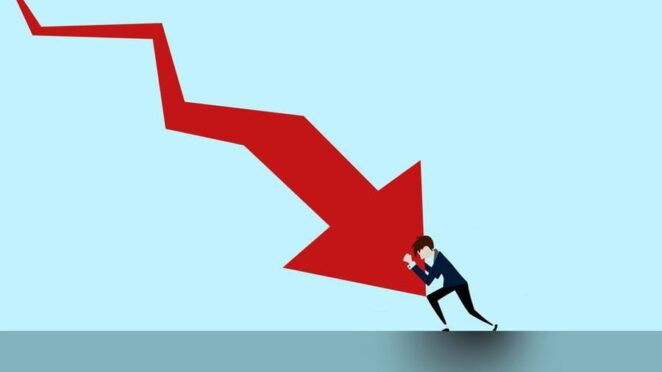The traditional definition of a recession is two consecutive quarters of decline in the gross domestic product (GDP). Despite some efforts to change that definition, most people would agree that we’re either in a recession now or headed for one.
That makes it a little scary to think about opening a new establishment. However, some business professionals argue that starting a business amidst a national economic downturn has its advantages. This is because startups are inherently agile. They can take advantage of the weakened economy and end out on top. You can launch a business during a recession and still thrive with the right strategies.
Here is how to do it.

Focus on Pricing
40% of consumers say that pricing is the first factor they look at when choosing to buy a product. That number is likely to be meaningfully higher during a recession – especially one like this in which inflation is very high.
That is why focusing on pricing during a recession is so important. If at all possible, you want your products to be the best-priced amongst the competition. That way, when customers compare your brand with others, they will see that you offer the best deals.
You may need to adapt your business strategy to make this possible. For example, raising prices without thoroughly analyzing when and by how much might harm your company in the long term. Therefore, it is critical to plan ahead of time. Thoroughly understanding your business allows you to develop the best pricing approach.
Adapt Your Marketing Strategy
If you launch it during a recession, you will also need to change how you market your new business, this is something IT consultant could help you with. When it comes to marketing, you have to be aware of what people care about. During a recession, they care more about pricing than anything else.
That means your marketing outreach will likely need to focus on bringing people to your company on the basis of saving money. You might do that by highlighting your best deals, offering limited-time discounts on special days, and deploying other strategies highlighting your business as a place to save money.

Purchase Insurance
Recessions are uncertain economic times. As the federal reserve attempts to manage its interest rates and balance sheets, metrics like inflation, employment, and more can swing significantly in one direction and the other. This can impact your business in many ways.
For example, you might suddenly have difficulty finding enough employees to maintain the hours you want to remain open as unemployment rates go down. But, on the other hand, you could also see a sharp decrease in customers as the recession deepens and people have less disposable income.
This is why purchasing business insurance during a recession is a good idea. It can help to protect your business no matter what the recession brings.
You can click here to learn more if you’re ready to get started with a workers’ compensation plan, which can help you pay out claims made by your employees.
You might also want to look into a general liability plan that can help you cover the costs of property damage, reputational harm, customers’ medical expenses, and more.
Start Lean
Another good rule of thumb during a recession is to do what you can to minimize your costs. That typically means starting lean and only taking on additional overhead when you’re well-established, or the economy is on better footing.
One way to do this is by starting your company online instead of opening up a storefront right away. This could help you develop a loyal customer base so that you already have a steady flow of income to fall back on when you do take on the additional expense of renting a retail location.
You might also want to either wait to hire employees altogether or only hire a few if you’re launching a business during a recession. Doing so will help you keep your costs low so that you can keep the business going without needing as many sales to do so.
There are many benefits of starting lean. Creating a lean startup can increase your business’s chances of survival. It allows you to pivot when you realize your current strategy is not yielding the desired results.

Take Advantage of Lower Interest Rates When They Come
In a typical recession, the federal reserve will lower interest rates to get more money into the economy and stimulate activity to attempt to end the recession.
This recession is a bit different. Interest rates are still being increased because inflation is out of control, and the government needs to tackle that before it can address the recession.
Because banks are charging more for business loans, you will have to utilize more of your revenues to pay interest on your loans, reducing profits. In response to this, you may hold off on specific projects or expansions, hindering potential growth.
Although low-interest rates are not here yet, they will be again in the future. When that happens, take advantage of it. You may be able to take out a small business loan with very little interest so that you can build your business without having to assume as much risk to do so.
Be Prepared for Every Scenario
It can be challenging to know what will happen next during a recession. The economy could recover relatively quickly, or it could be a year or longer before it regains its footing.
That’s why it is essential to be prepared for every scenario as a business owner during a recession. If you don’t know what will happen next, then you have to be ready for anything that might.

Look for Government Programs
Finally, it is worth looking into government programs during recessions. Various government programs contribute to establishing, expanding, and relocating businesses. In addition, the government will often seek to help small businesses thrive during uncertain economic times like these. For example, you may be able to get a loan or tax break that enables you to achieve your goals, which may not be possible during other times.




